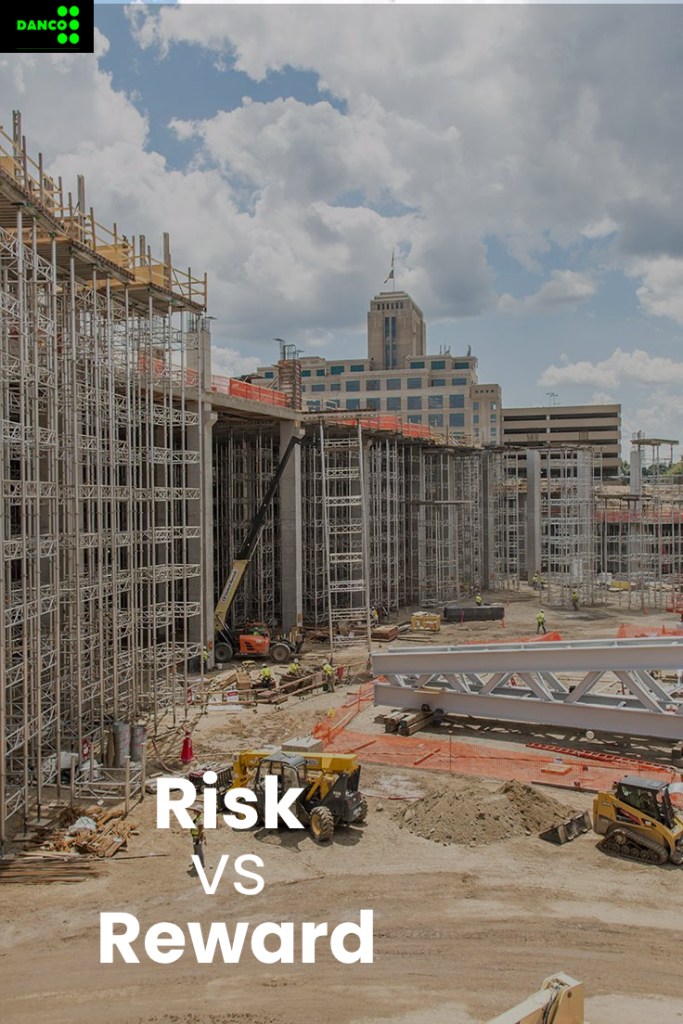⚖️ Risk vs Reward: Understanding Off‑Plan Projects in Kenya

Introduction
Off‑plan properties—homes sold before construction is complete—are increasingly popular in Kenya. With flexible payment plans and early-bird pricing, they promise rewards. Yet hidden risks—from delays to legal pitfalls—can turn excitement into regret. This guide helps you weigh both sides with confidence.
🏡 What Is Off‑Plan Property?
Off‑plan properties are sold based on architectural plans or renders before a building is completed. Buyers pay a deposit (often 10–30%) and stagger the rest during construction, hoping to benefit from capital appreciation upon completion. It’s a speculative model with high upside—but real risks too.
The Rewards: Why People Invest
1. Lower Purchase Price
Developers often offer launch discounts—sometimes 10–30% below market value. In Nairobi’s Kilimani or Kileleshwa, early buyers have seen prices rise by 15–39% within a few years.
2. Flexible Payment Plans
You pay smaller installments through the build phase, easing upfront financial pressure. Common structures: 20–30% deposit, progressive payments tied to milestones, final balance on completion.
3. Customization Opportunities
Some projects allow buyers to adjust layouts or choose finishes—adding personal value or boosting future resale appeal.
4. High Demand Locations
Urban growth areas facing infrastructure developments attract steady demand from renters and buyers. This boosts resale or rental potential, with yield rates in some areas hitting as much as 6–12% annually.
⚠️ The Risks: What Could Go Wrong
1. Delays and Construction Issues
In Kenya, 20–30% of off‑plan projects face significant delays due to financing or regulatory challenges. Without penalty clauses, you could wait much longer than anticipated.
2. Developer Non-Delivery or Insolvency
Some developers abandon projects mid-way or default on delivery, leaving buyers with no product and little recourse.
3. Legal and Regulatory Gaps
Risky purchases include those with unapproved building plans, unclear land titles, or inadequate regulatory compliance (NEMA, NCA, county approvals). A flawed title or missing permit can halt your investment altogether.
4. Unclear Contracts
Many sale agreements favor developers, lacking specifics on delivery dates, material quality, or penalty terms. Without a detailed agreement, advertised features may never materialize.
5. Misrepresented Features
Renderings often promise superior materials or grand structures which may be downgraded upon delivery—especially if not contractually guaranteed.
6. Market Fluctuations
Economic factors like inflation, interest rate shifts, or downturns can reduce projected price appreciation—or even reverse gains. A stalled or oversupplied market could hurt your timelines or returns.
7. Lack of Immediate Rental Income
Since units are uninhabitable during construction, you earn nothing until completion—and profitability may be delayed further by slow take-up or construction delays.
How to Tilt the Balance: Smart Buying Practices
Do Your Due Diligence
- Verify the developer’s track record and visit past projects.
- Check credentials: NCA registration, Past Deliveries, Valid Title Deeds.
Legal Protection
- Engage your own qualified property lawyer—not the developer’s—to review the sale agreement.
- Ensure documentation: Title deed, NEMA/EIA approvals, zoning, and building plan permits.
Secure Payment via Escrow
Insist on a third-party escrow account, tying payments to construction milestones. This prevents losing money if the project stalls.
Demand Transparent Contracts
Your agreement should detail:
- Unit dimensions, finishes, amenities
- Specific completion timelines with delay penalties
- Refund clauses and dispute resolution terms.
Monitor Progress
Visit the construction site regularly, request updates from the developer, and verify milestones—don’t rely on marketing images or vague update emails.
Avoid Payment Pressure
Never agree to pay large lumps upfront. A structured plan of 20–30% deposit, staged instalments, and balance on completion is safer.
Evaluate Your Exit Strategy
Consider resale potential in case you need to exit early. Choose areas with rising infrastructure and development traction for greater liquidity.
For Whom Is Off‑Plan a Smart Choice?
Best for:
- Long-term investors with patience and capital buffer
- Buyers wanting flexible payments
- Those seeking appreciation in growing areas
Not suitable for:
- Buyers needing immediate occupancy
- Those with low risk tolerance or unverified developers.
Final Takeaway: Off‑Plan Can Win—If You Buy Smart
Off‑plan projects offer a tempting mix of affordability, flexibility, and growth. But without legal safeguards, verified developers, and careful oversight, the payoff could vanish.
If you’re clear-headed, patient, and demand transparency—off‑plan can be a path to real wealth. But don’t gamble your capital on promises alone.
📌 Next Steps
- Need help verifying a developer or document?
- Want a checklist or due-diligence template?
- Interested in property listings with strong track records?
Just say the word — Danco’s expertise is here to guide you every step of the way.

